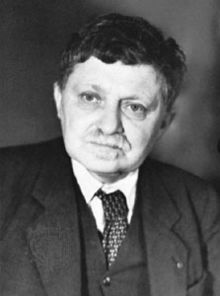I have been thinking about last week’s column that was devoted to the idea that the actions that a person performs reveal the identity of that person and also help to form and shape the identity of the person acting. The deeper the action, the deeper the effect. A vow has tremendous power to influence the lie of the person who makes the vow.

I borrowed an idea from the Catholic philosopher Gabriel Marcel that as the person’s identity becomes more centered on God and more consecrated, the person’s life could be looked upon as a single action, a sacrament. What a beautiful idea! I wonder if such a life could be looked upon as a prayer. The person would have achieved a marvelous unity in his or her life through a deeper and deeper identification with God. The person’s love relationship with God would influence the person’s entire life.
It might almost seem that the person’s identity has become a prayer. Seymour Cain in his brief but exceptionally-good book on Marcel’s philosophy comments on the special place that prayer has in Marcel’s philosophy and in Marcel’s view of the human person:
“Religious worship for Marcel is the paradigmatic act of being with, of ontological community, of opening up and adherence to being. It is only in worship that any intimate knowledge of the Absolute Thou may be obtained; indeed, worship may be viewed as the starting point for any philosophy of transcendence, and there may be a close analogy between worship and metaphysical vision or contemplation, with a common source in wonder.” (“Gabriel Marcel,” South Bend, Indiana, Regnery/Gateway, Inc. Book Publishers, 1970, p. 93)
Marcel claimed that when we speak about God it is not God about whom we are speaking. He thought that God-talk should be talk to God, in other words should be prayer, rather than talk about God. My interpretation of Marcel’s view is that talk about God may be possible if we are careful not to shrink the meaning and mystery of God to a reality that we can completely understand. This is an error that is easy to make.
For Marcel, religious worship sums up both the meaning of God and the meaning of the human person. I think it is fair to say that for Marcel a human person is most a person when the person is engaging in prayer. The activity of praying wonderfully opens us to the mystery of God and helps us to know God intimately. Metaphysical vision and contemplation are wonderful. I have spent much of my life trying to achieve such contemplation and vision and also trying to help students achieve metaphysical contemplation and vision. However while they may be analogous to prayer, they are not identical to prayer.
Of course, a human person may pray deeply and often, but though such a person is prayerful, we would not ordinarily refer to the person as a “prayer.” What I am trying to imagine is a person who is so close to God that the person’s actions, indeed the person’s entire life, becomes like a prayer. This image would possibly fit the Blessed Mother and perhaps some of the other great saints. I very much like Marcel’s suggestion that philosophical contemplation and prayer have a common source in wonder. Deep philosophical thought can be stimulated by the experience of awe and wonder.
What can happen in the life of a person who prays seriously is a marvelous transformation. This transformation in a human person through a love relationship with God was described beautifully by the great Catholic theologian, Bernard Lonergan:
“Such transforming love has its occasions, its conditions, its causes. But once it comes and as long as it lasts, it takes over. One no longer is one’s own. Moreover, in the measure that this transformation is effective, development comes not merely from below upwards but more fundamentally from above downwards. There has begun a life in which the heart has reasons which reason does not know. There has opened up a new world in which the old adage, “Nothing is loved unless it is first known,” yields to a new truth, ‘Nothing is truly known unless it is first loved.’ It is such transforming love that enables Paul to say: ‘The life I now live is not my life, but the life which Christ lives in me’ (Gal 2:20). (Bernard Lonergan,” Christology Today: Methodological Reflections, in A Third Collection)
I suggest that the two actions that can unify our lives and transform them into important contributors to the Holy Spirit’s sanctification of the world are love and prayer. Neither can be one without the Holy Spirit’s involvement. When we love and pray we can become channels of God’s grace.
Father Lauder is a philosophy professor at St. John’s University, Jamaica. He presents two 15-minute talks from his lecture series on the Catholic Novel, 10:30 a.m. Monday through Friday on NET-TV.
